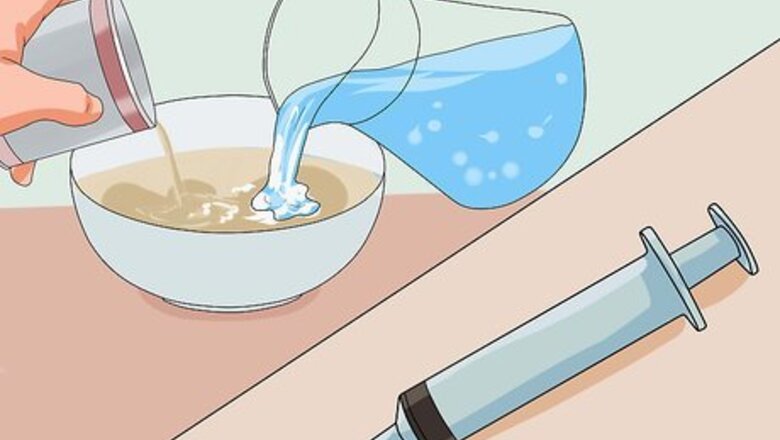
views
Making and Giving Your Hamster a Milk Mixture
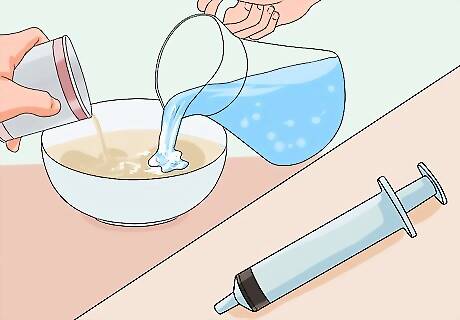
Create a milk mixture. Ideally, mothers will nurse baby hamsters for the first month of their lives. Other milks won't have the same balance of nutrients. If your baby hamster’s mother died before the hamster is weaned (usually 3-4 weeks after birth), you can act as a surrogate mother by feeding your baby hamster a milk mixture. Formulas designed for puppies or kittens also can work. These substitutes may cause diarrhea. Combine equal parts evaporated milk and water. Heat the mixture to 90 degrees Fahrenheit before you give it to the baby. Use a syringe or specially designed feeding wick to feed the pup.
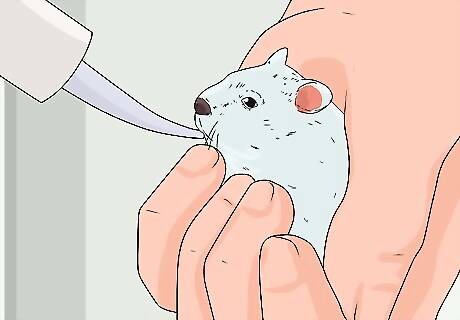
Feed your hamster the milk mixture. The amount of formula you give your hamster depends on its type (dwarf or Syrian) and age. Generally, you will feed the hamster more milk in the beginning of its early life. Supplement formula with small seeds (like millet), wheat germs, and safe fruits and vegetables (e.g. broccoli, cauliflower, bananas). By the end of a month, you should wean your hamsters from the mixture. Dwarf hamsters under the age of two weeks should receive two syringe drops of formula in thirty minute intervals. You need to feed the hamster through the night. Once the hamster is two weeks and older, you can give him ½ milliliter of formula once per sixty minutes. Syrian hamsters need more milk. Twelve times daily, give these pups 1 milliliter of milk until they are two weeks in age. After this point, give them two milliliters of milk eight times throughout the day. Break vegetables and fruits into small pieces. For example, break one floret of broccoli into several smaller bite-sized amounts.
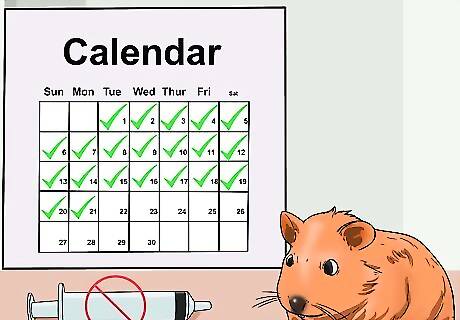
Wean your hamsters from milk. When your hamsters (dwarf or Syrian) turn three weeks old, they will start to consume solids. At this point, begin to wean them from milk. Decrease the quantity of milk by half for one to two days. After this point, cease to give milk altogether. Dwarf hamsters will continue to nurse (or drink milk) until they are about 21 days old. Syrian hamsters will nurse a bit longer until they are 26-28 days old.
Altering Hamster Pellets
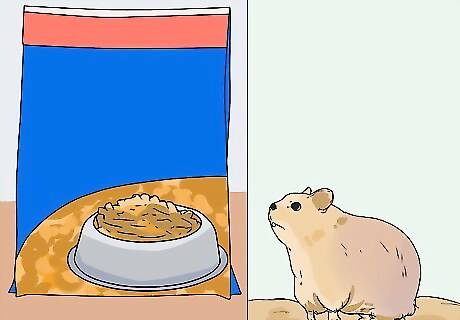
Purchase hamster pellets. You can get hamster pellets from pet stores. They are often called lab blocks and are one inch long with a diameter of ½ inch. They contain seeds plus grains, and vitamins and minerals. Pellets ensure that your hamster receives all his necessary nutrients. Baby hamster food should have 18-20% protein and 7-9% fat content. Be sure to also include food high in carbohydrates. If you are going to buy hamster food, look at expiry dates. Realize feed typically lasts only three months before spoiling, Do not feed your pet expired hamster food. There could be hatched moth eggs within the bag.
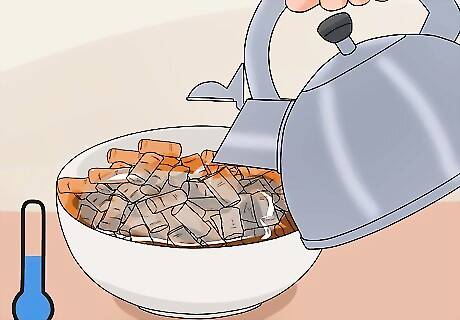
Soak pellets in water. Place your hamster’s pellets in a bit of water. Wait until they are soft. They should not be so soft that they disintegrate. Rather they should have a mushy texture, which makes it easier for the hamsters to eat them.
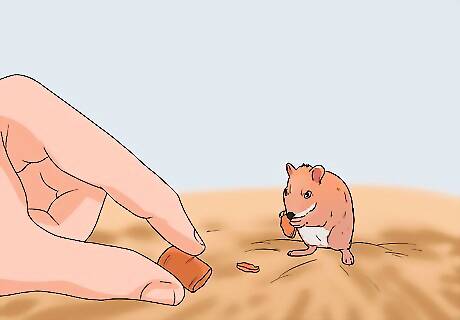
Feed the pellets to the hamsters. Place the pellets on the floor of the cage. Your hamsters can eat their food more easily when it is reachable. Generally speaking, baby hamsters can start eating solid foods when they turn ten days old.
Keeping Your Hamster Pups Healthy
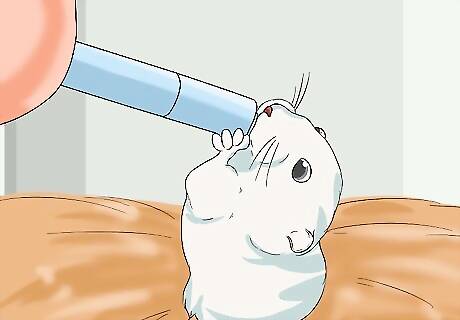
Give them water. Although many adult hamsters get water through vegetables, it is also important to provide water--especially to babies. Place water drinking tubes low enough so the babies can reach them. Make sure water is filtered and sans chlorine. Change water every day. Never give your hamster chocolate, alcohol, or caffeine. These substances can harm your pet!
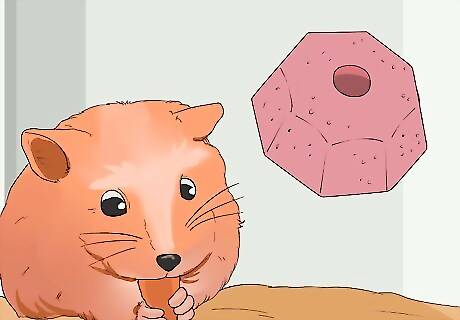
Provide salt licks. Hamsters need salt to keep water in their system. Salt generally keeps them healthy as well. In nature, they might lick rocks to receive needed sodium. To give a similar experience, buy salt licks at your pet store.
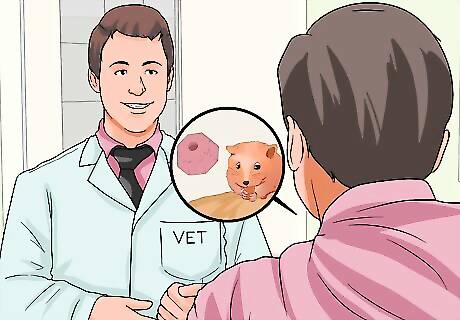
Introduce new foods cautiously. When you want to feed your pet anything new, especially fruits and vegetables, speak with your vet first. Particularly, avoid treats that have a high sugar content. Vitamin and mineral supplements are also likely unnecessary but to be safe, speak with your vet first before giving your pet supplements.




















Comments
0 comment